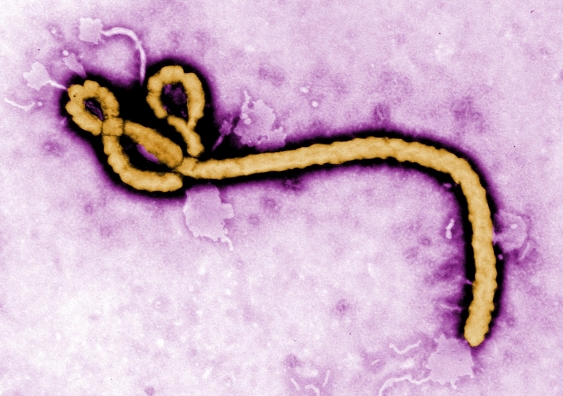Scientific uncertainty around the 2014 Ebola outbreak – its management and the threat it posed to Australia – left frontline healthcare workers to decide as individuals how many risks they were prepared to take to treat patients – an unreasonable moral challenge, UNSW research shows.
The study, which was led by UNSW Professor Alex Broom and appears in the Journal of Sociology, involved in-depth interviews at a Queensland teaching hospital involved in Ebola preparedness in the state.
The study drew on interviews with 21 health professionals directly involved in Ebola preparedness, including eight senior doctors and 13 nurses.
The experiences documented by the research would resonate with those of many other hospitals around the country, Professor Broom says.
“Our work provides critical evidence that Ebola preparedness planning in 2014 was ad hoc and fragmented, and various international agencies perpetuated the problem by constantly changing Ebola management advice,” he says. “There was a complete lack of confidence in methods of Ebola preparedness in Australia, and the perception was of a serious level of risk placed on key frontline health workers.”
The study found a prevailing sense among health workers that care of Ebola patients would be futile and/or dangerous, given there was no vaccine or treatment available apart from supportive therapy, and given the relative ease of transmission and high mortality rates.
The “instability of scientific knowledge” about how to effectively manage the virus and the constantly shifting goalposts meant individual hospital staff had to decide how far they were prepared to go to treat a patient, says Professor Broom.
Inadequate responses from health authorities, government and international agencies put workers in a difficult position where fear of the unknown was exacerbated by mistrust of officials, allowing risk and dread to become central to the narrative.
Professor Broom describes the overall attitude of health staff as one of “anxious dismissiveness”, where the spectre of Ebola was kept at bay by thinking of it as an ‘African thing’ that was ‘apocalyptic’ in its foreignness. This led some nurses and doctors to ask why they should be responsible, and question whether their duty of care extended that far, exposing a “latent racism, protectionism or apathy towards a primitive and spatially distant other”.
“By not providing effective strategies for Ebola responsiveness we in fact perpetuate fear of others and irrational feelings of the threat posed by another people or another cultural group,” Professor Broom says.
“If our planning strategies were more organised, coherent and responsive to the experience of frontline healthcare professionals, the fear and anxiety could be minimised and the resultant feelings about other societies limited.”



